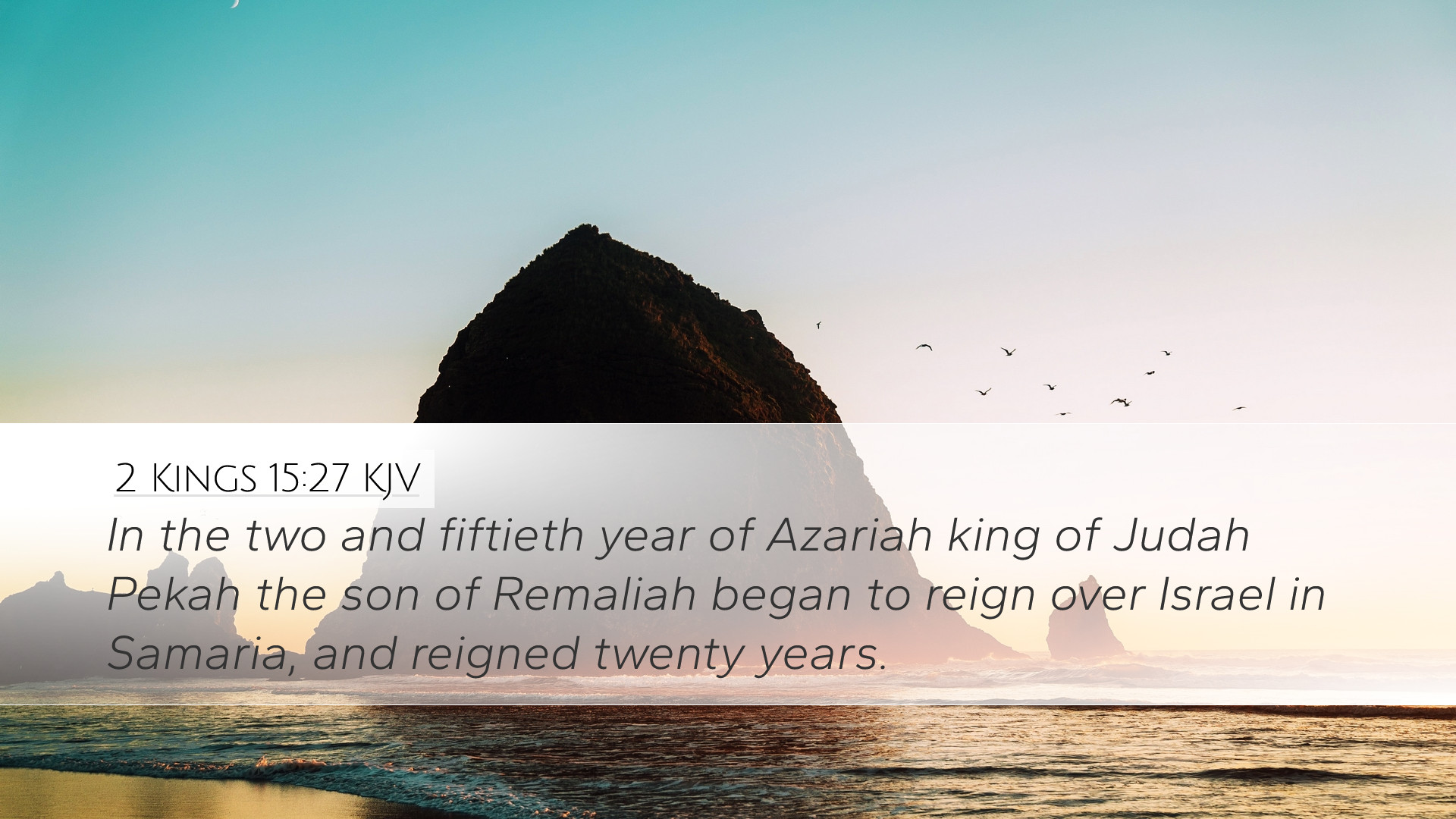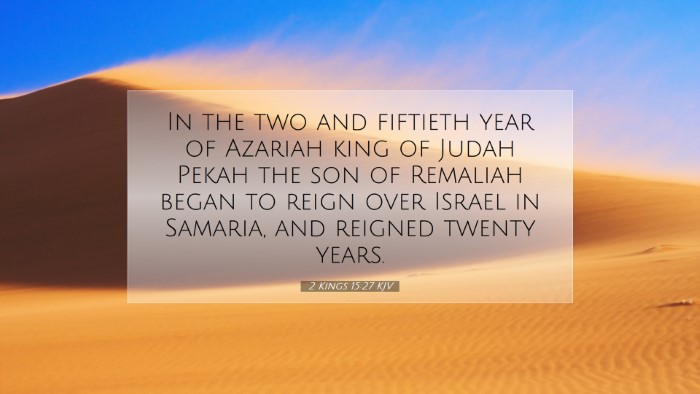Commentary on 2 Kings 15:27
2 Kings 15:27 states, "In the fifty-second year of Azariah king of Judah, Pekah son of Remaliah began to reign over Israel in Samaria, and he reigned twenty years." This verse marks a significant moment in the history of the Northern Kingdom of Israel, encapsulating the political landscape and the shifting dynamics of leadership during a tumultuous period. Several public domain commentaries provide vital insights into this verse, exploring its implications for the historical and theological understanding of the time.
Historical Context
Pekah's ascent to the throne at this time, during the reign of Azariah (also known as Uzziah) in Judah, reflects the complex interrelations and rivalries between the two kingdoms. According to Matthew Henry, the reigns of these kings are pivotal for understanding the decline of Israel and the moral state of the people.
Matthew Henry's Observations
Matthew Henry notes that Pekah's reign is emblematic of the broader spiritual malaise that afflicted Israel. His rise to power through conspiracy indicates the instability and violence that characterized the leadership in Israel:
- Conspiratorial Beginnings: Pekah came to power through a plot against King Pekahiah, highlighting the contentious political landscape.
- Length of Reign: His twenty years of rule signify both a period of continuity and significant challenges in governance.
- Spiritual Decline: The text suggests a time filled with idolatry and rebellion against God, which Henry stresses is critical in understanding Israel's eventual downfall.
Albert Barnes' Insights
Albert Barnes expands on the importance of this verse in the broader narrative of Israel's history, emphasizing the implications of leadership choices on societal morals. He examines several key themes:
- Political Turmoil: Pekah’s rise illustrates the frequent changes in leadership during this era, often driven by violence.
- Contrast with Judah: Barnes contrasts the increasingly wicked practices in Israel with the comparatively stable and reformative periods in Judah under Azariah.
- Role of Prophets: Barnes highlights the necessity of prophetic figures, who often arise during such chaotic epochs to call the people back to faithfulness.
Adam Clarke's Analysis
Adam Clarke provides a comprehensive analysis of the socio-political landscape during the reign of Pekah. He brings several points to light:
- International Relations: Clarke discusses how the actions of Pekah were not just localized events but were influenced by surrounding nations, particularly Assyria.
- Judgment Pronouncement: He posits that Pekah's rule can be seen as a fulfillment of God’s judgment, by allowing a leader who would further lead the people away from true worship.
- Enduring Legacy: The impacts of Pekah's reign extend beyond his death, leaving a legacy of division and instability that would have enduring effects on the nation.
Theological Reflections
The historical analysis of 2 Kings 15:27 leads to significant theological considerations that are of interest to pastors, students, and theologians alike:
- Leadership in Crisis: The text challenges contemporary leaders to understand the weight of their responsibilities and the spiritual implications of their governance.
- God's Sovereignty: Amidst the chaos, there is an underlying message of God’s sovereignty, where even the rise and fall of kings are orchestrated by divine providence.
- Call to Repentance: Pastors can draw upon this account as a reminder of the call to repentance, not just for personal sin but for national and communal sin, echoing the need for revival.
In conclusion, 2 Kings 15:27 serves as a microcosm of Israel’s tumultuous history, particularly through the lens of leadership. The insights from Matthew Henry, Albert Barnes, and Adam Clarke collectively emphasize the importance of spiritual integrity in leadership, the consequences of sin, and the necessity of prophetic voices in both ancient and modern contexts. Understanding these dynamics provides a richer appreciation for the biblical narrative and its implications for current faith communities.


